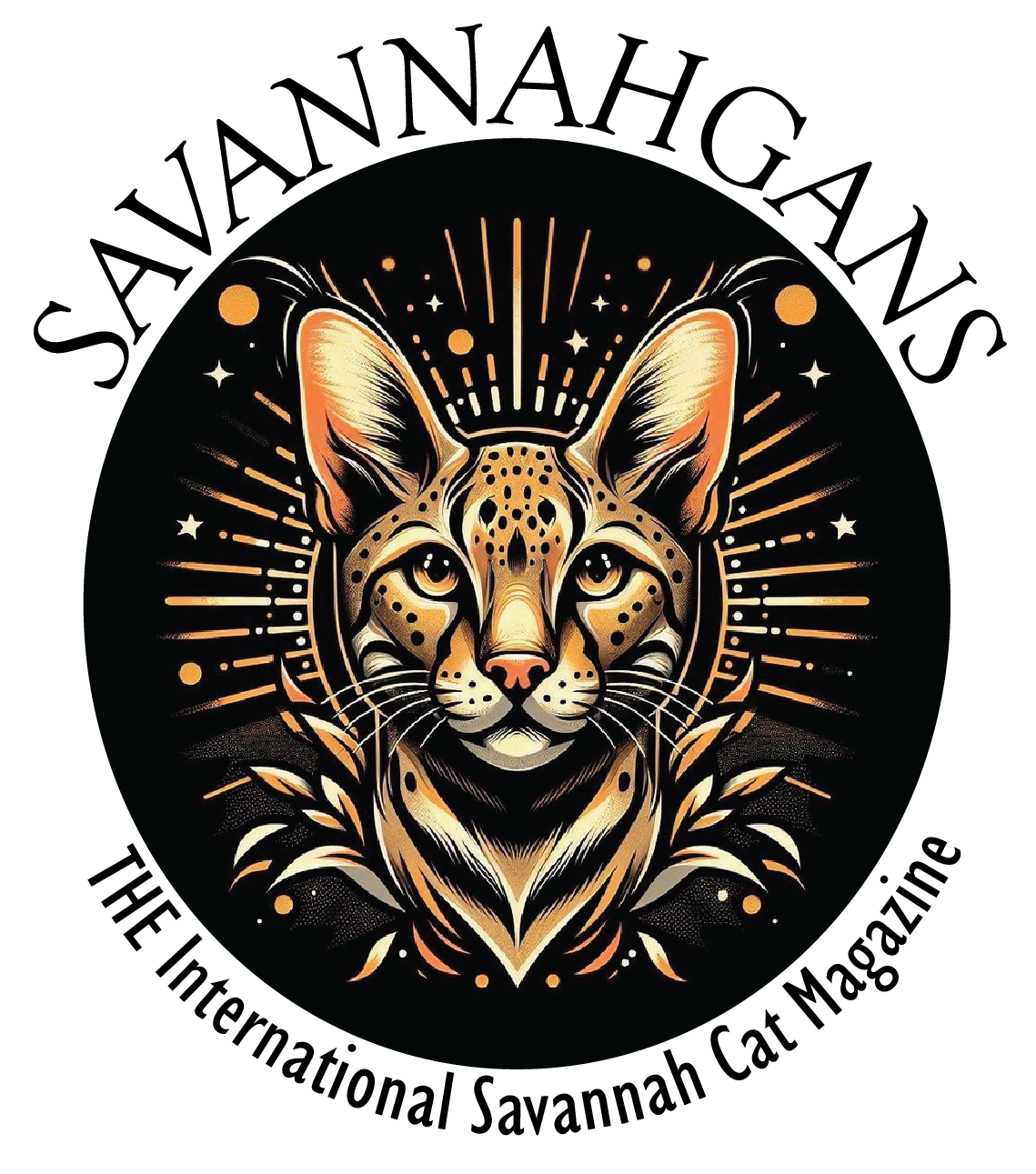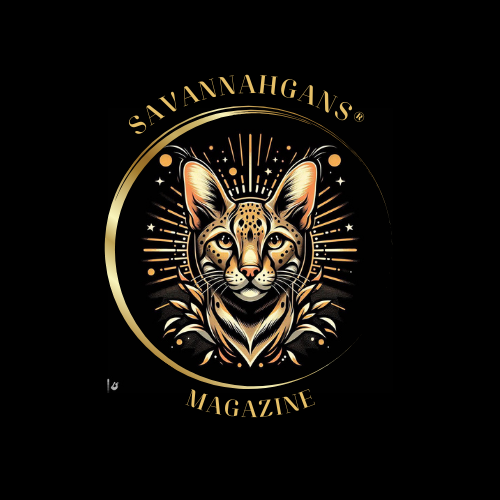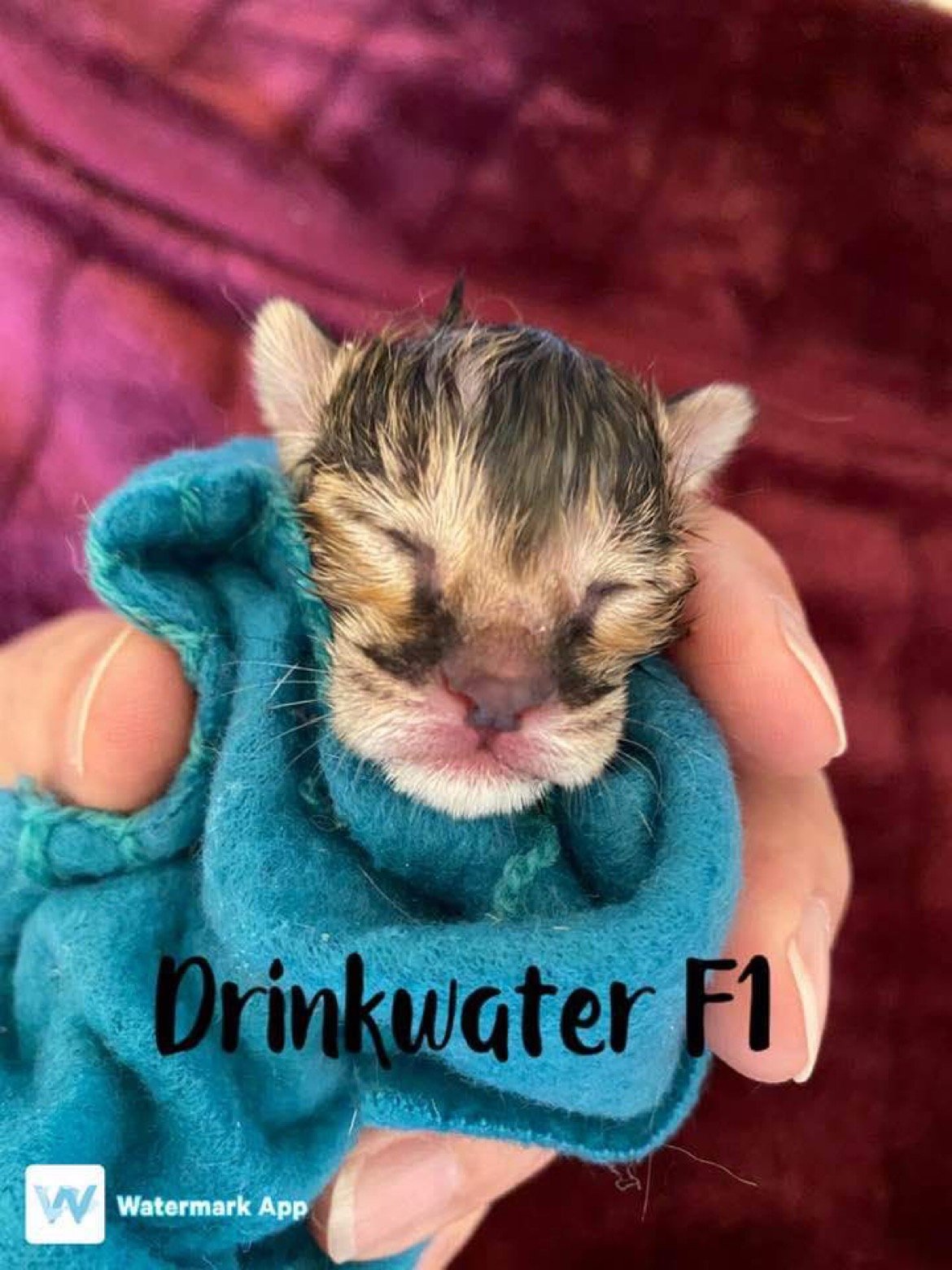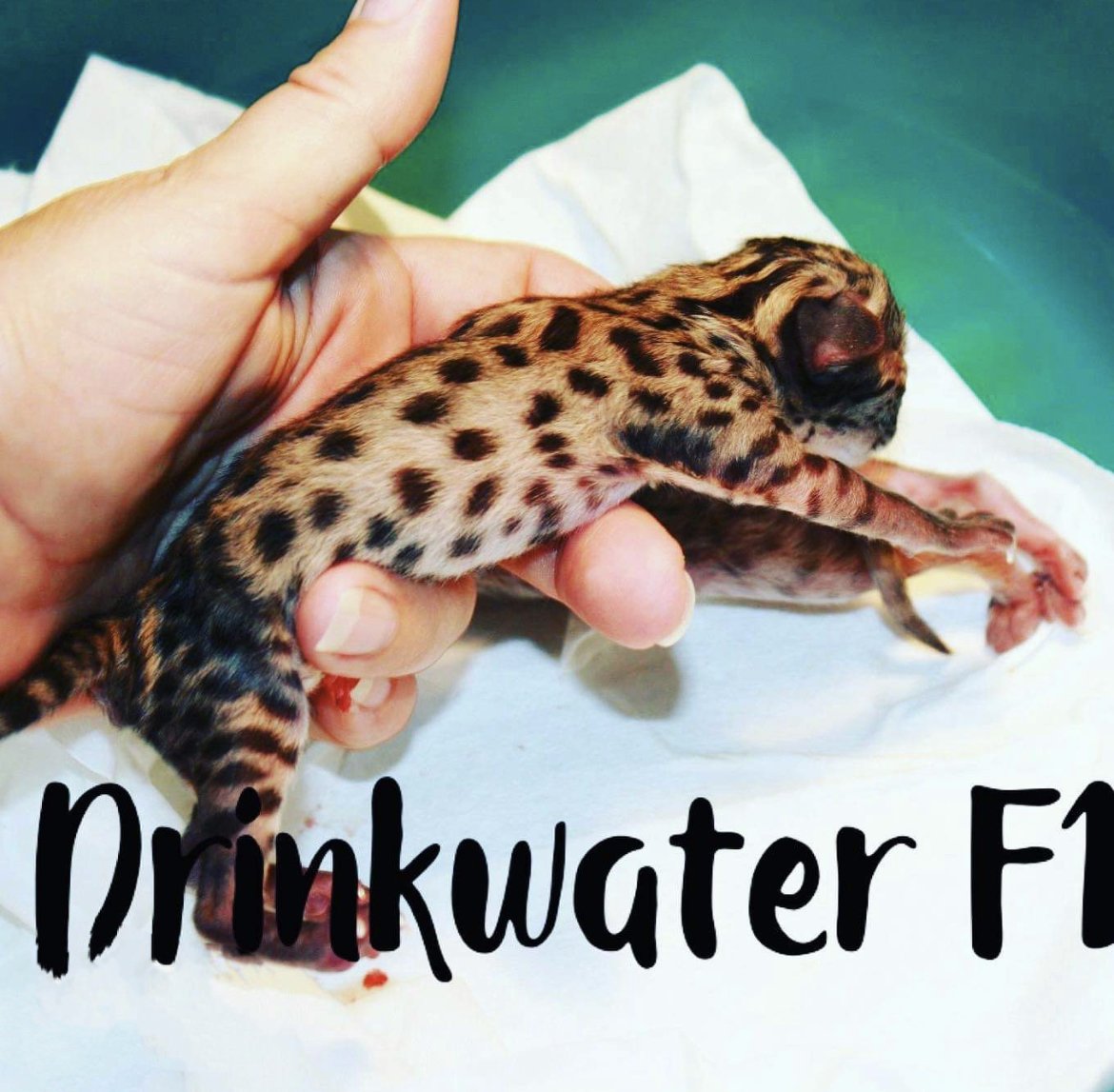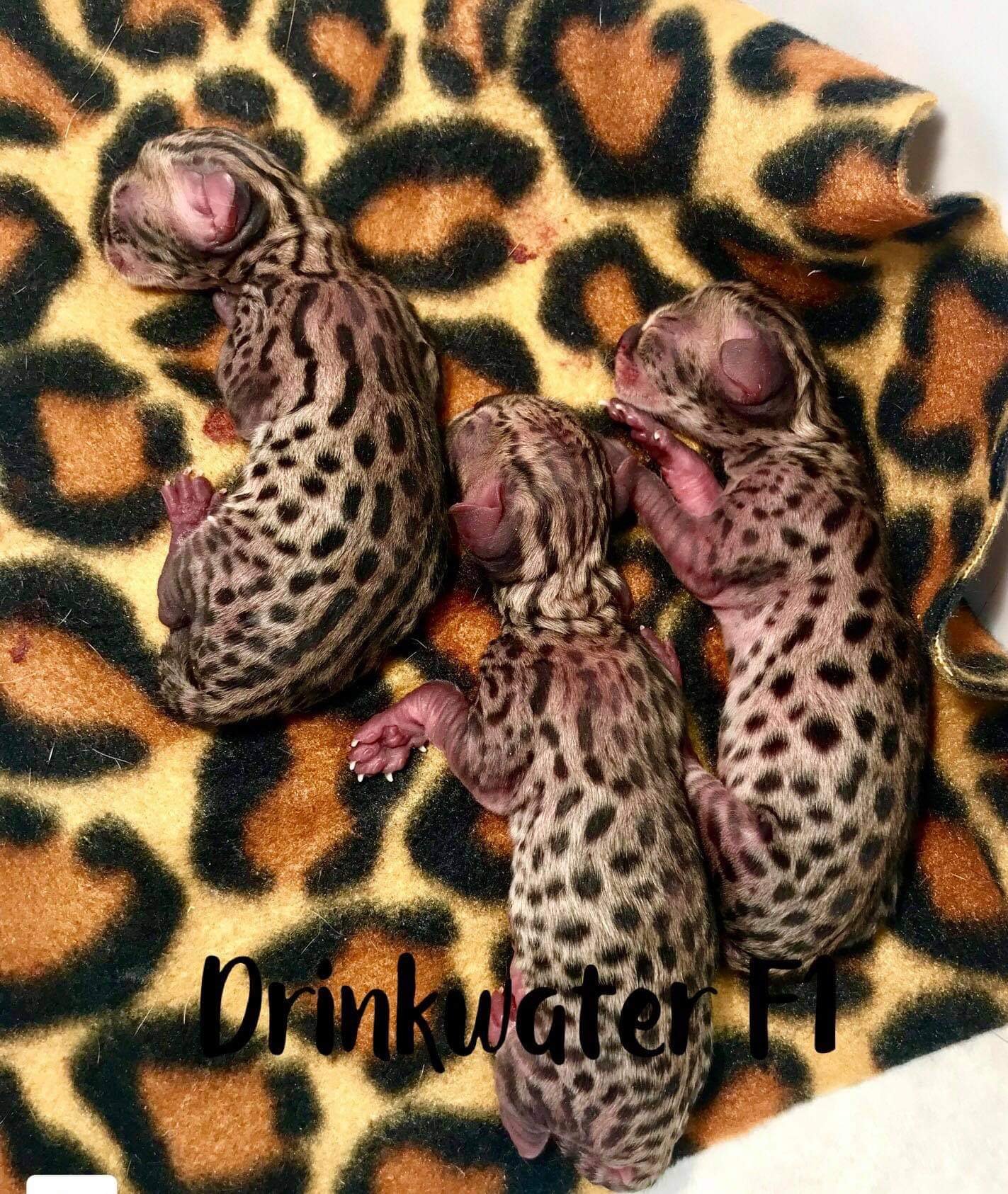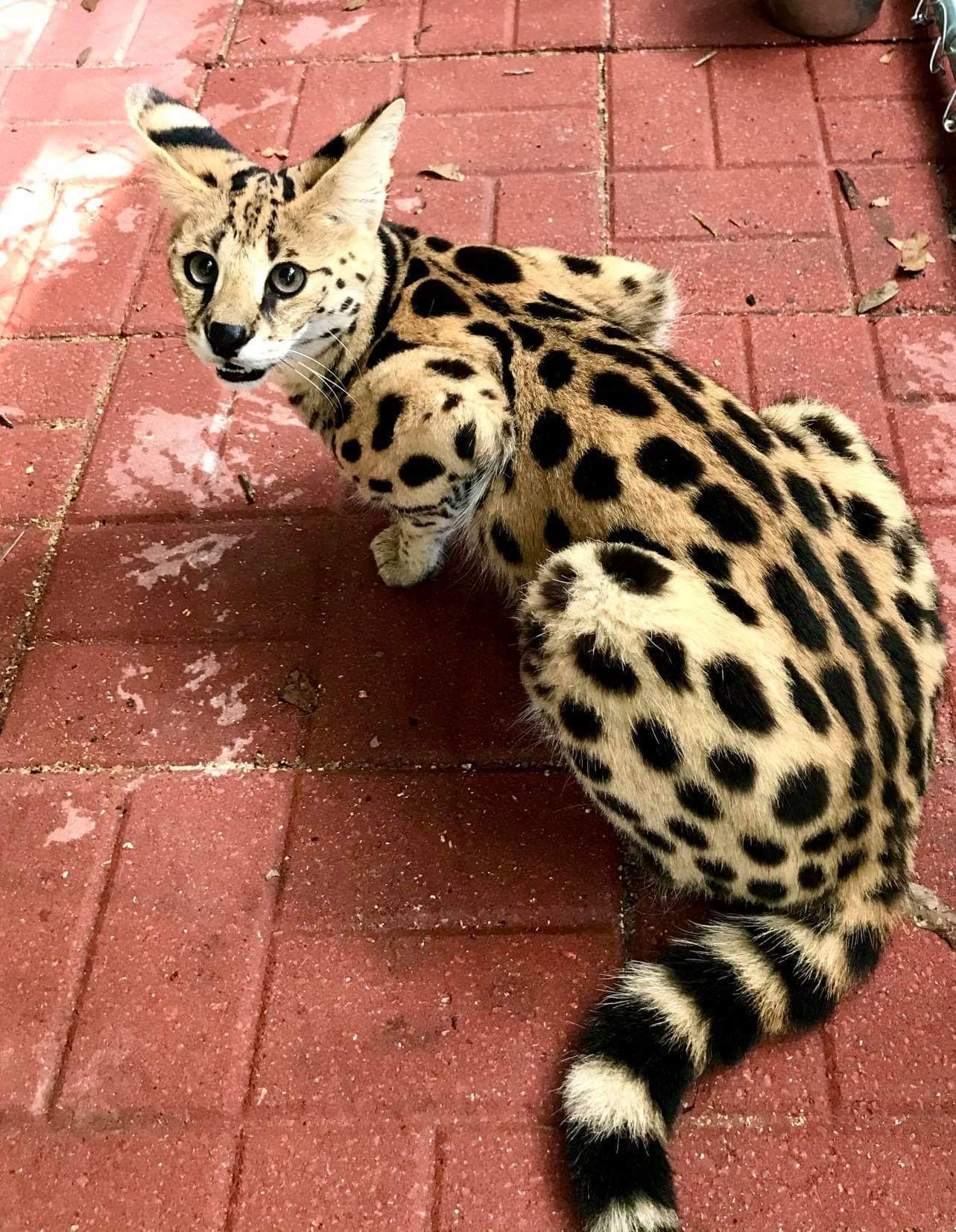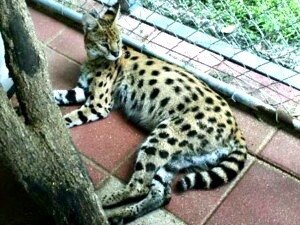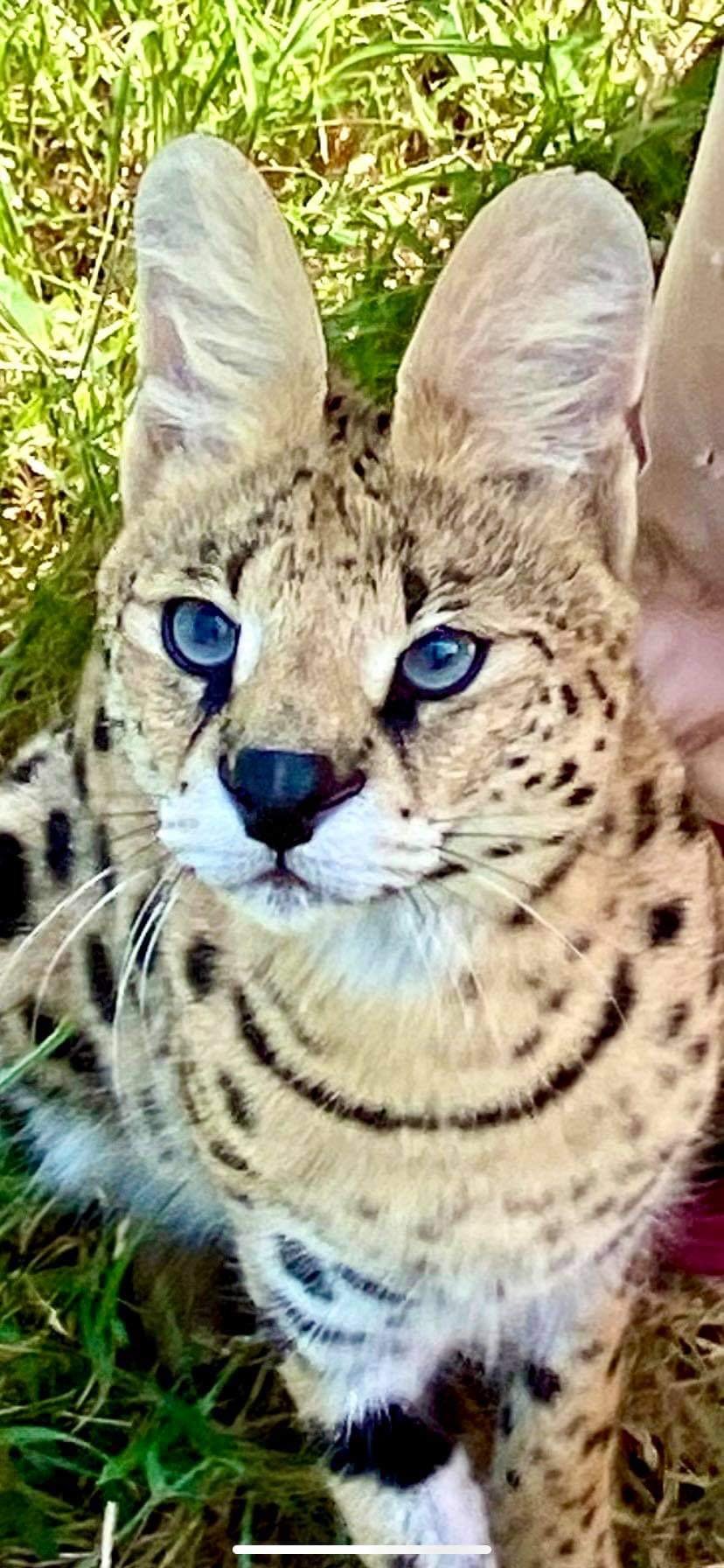SAVANNAHGANS® In-Depth Interview with Foundation Breeder Doreen Boileau of Drinkwater Cats
1. How'd you come up with your cattery name of "Drinkwater Cats"?
My Last name BOILEAU is French for "drink the water," so DRINKWATER became my cattery name!
2. Where's your cattery located?
Spring Hill, Florida, right near the Gulf of Mexico
3. Please tell us a bit of yourself, your background, family, occupation(s), and how you got started with Savannah breeding.
I've owned horses, dogs, and cats since I was a kid. I never was a breeder, just a pet owner. I showed horses and dogs, and then cats. I'm a Psychiatric nurse, play the piano, and speak several languages. I have one son who passed away in 2020. My deep grief and misery have taught me how important the devotion of my loving animals is to me.
I became a Savannah breeder in 1995 when I became intrigued by African Serval Cats. Joyce Sroufe was my mentor, and a small group of us were busy trying to produce a hybrid of the African Serval cat. These were the experimental days! I've specialized in the F1 Generation for 24 years and mentored many Savannah breeders who still breed today. My F1 Savannahs have brought the breed to another level, going on to produce F2, F3, F4, and so on.
4. Is your family involved with your cattery work? If so, how?
My husband helps me a lot, especially with the heavy work moving food and litter. I also use my Gator every day as we have six acres. Mostly, I keep my cattery small to pet and spend time with each cat several times a day.
5. What's your typical daily routine at your cattery from morning till evening?
I feed and clean both morning and evening. Twice a day is essential to refill spilled water or scoop a messy box. Servals need two meals a day. Running a cattery is 24/7--no vacations ever over here!
6. What's the best part about breeding?
The rewards of the fantastic babies produced! Each F1 baby is extraordinary and an individual. Every Savannah, no matter the generation, is so special.
7. What's the worst/most challenging part about breeding?
F1 is the MOST DIFFICULT. There are 50 hoops of burning fire to go through before you get this amazing hybrid kitten. Dealing with premature babies is heart-wrenching; they are so fragile.
8. Do you recommend people try breeding Savannahs? Why/Why not?
To be a breeder is a huge commitment, and it requires full-time care and devotion. You must be able to be there for your cats.
9. What's the best tip or advice you've received from another breeder?
Don't overcrowd your breeding program. Keep the number of cats down.
10. What's the biggest weakness of the Savannah breed?
Weakness in the breed is appearance. Many Savannahs look like Bengals in face and pattern, and Rosetting is often noticeable. The ears and body style need work on many bloodlines.
11. What's the biggest strength of the Savannah breed?
Most Savannahs have good health. Possibly "hybrid vigor."
12. What's the most crucial thing a breeder does?
Be aware, clean, and cautious. There's so much to know, and it takes years of experience.
13. What should new breeders know they may not have considered?
Starting a breeding program is time-consuming and expensive. You must make the right decisions, or you'll be starting over again two or 3three years later. Know that this isn't a part-time hobby. Don't breed if you don't have the time or money to take proper care of your cattery. Be a pet owner and enjoy your Savannah(s). the Future of our breed is in the breeder's hands. Breeders must unite, be nice to each other, and work towards the same goals of bringing the breed to another level. Keep the bloodlines healthy and pure, and your hard work, love, and devotion will shine through!
14. Do you feed your Savannahs a raw diet, and do you recommend raw feeding to your families? Why/Why not?
I feed raw only to my Serval cats, and I feed canned and kibble to the Savannahs. I don't recommend raw to pet owners.
15. If not raw feeding or supplementing, what food brands/types do you recommend and why?
Servals should always get supplements. Kibble should have chicken as the first main ingredient, and canned should be high quality, with chicken as the main ingredient.
16. Do you have a favorite Savannah Cat website or cattery?
I like Savannahcat.com. I was one of the first breeders on there! I remember when only a few of us were on there for a long time! Patrick Kelley, the founder of Savannahcat.com, is my friend of 20 + years!
17. Have you bred any other type of cat or animal besides Savannahs?
I started with Savannahs and, for a while, also bred Bengals. I phased out Bengals years ago because the breed has many health issues.
18. What do you think about the phasing out of F1 Savannahs?
It's unfair after so many years of working to create and move forward with the breed. F1, F2, and F3 will have to be registered elsewhere, and we Savannah breeders will find a way! Too bad the breeders can't work together on this, but there is too much fighting, attacking one another, and getting nowhere. It was not like this years ago. We were a smaller group, and everyone cared so much about each other.
19. What about the phasing out of F2s and F3s?
It isn't going to stop breeders from breeding them!
20. I understand your specialty is the F1 Savannah. What can you tell us about owning and breeding with Servals?
F1 is the most complex generation to breed. Most Servals won't mate with a smaller Savannah; he wants a Serval to breed! Many Servals aren't fertile with a domestic cat. So many things can go wrong!
21. How long will a Serval continue to breed, and do they tend to only mate with one specific queen?
Servals will slow down after ten years and get a lot of "misses." Servals usually only love one girl, and perhaps, she can't pull it off. My Serval "Timbuck" kept breeding until he was 16 years old, then just slowed way down. Breeding occurs in "proven" boys, but many matings don't take after ten years.
22. What special/unique traits and characteristics are only specific to F1's?
The LOOK, for the most part. F1s are big and look like Servals!
23. What should a potential buyer of an F1 know upfront about owning one?
An F1 will be devoted and dog-like. They are big cats in the house and fit in well with smaller cats or dogs, and they are NOT couch potatoes!
24. What else would you like the Savannah world to know about you and your cattery?
Drinkwater is a Foundation cattery of the breed. I've worked hard over the years, putting out many different foundation pedigrees—F1's that went on to make F2, F3, F4, and so on. I stay to myself and work hard every day. Enjoy the Savannah breed! They are amazing cats, and we all are lucky they are available to us!
